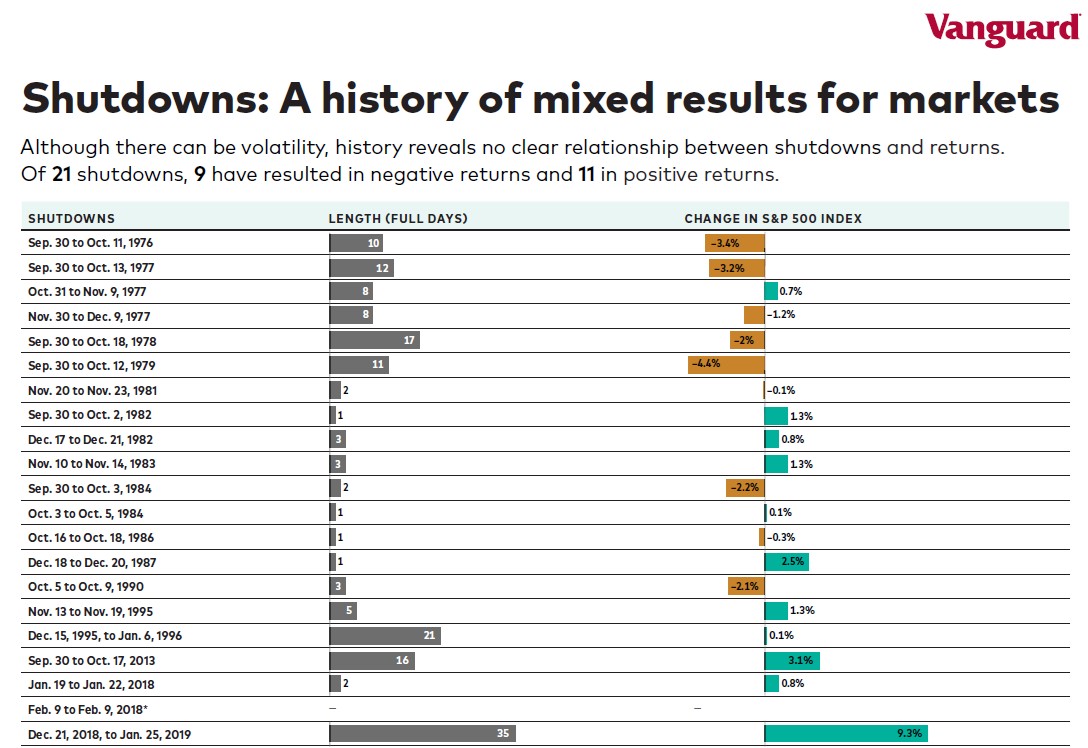
A government shutdown occurs when Congress fails to pass a budget or short-term funding bill to keep federal agencies running. Without that funding, the Antideficiency Act (ADA) requires many government functions to pause until a deal is reached.
While shutdowns vary in length, they can cause financial stress for federal workers, disrupt services, and create short-term economic ripple effects.
• Essential services continue: National security, air traffic control, law enforcement, and Social Security/Medicare payments typically keep running.
• Federal workers: Many are furloughed (sent home without pay until the shutdown ends), while essential employees may work without immediate pay.
• Public impact: National parks and museums often close, some benefits and permits are delayed, and discretionary programs like research grants or WIC nutrition assistance may pause.
Overall, government shutdowns don’t typically impact the stock market in any significant way. In fact, in a study done by Vanguard - out of the last 21 government shutdowns, the S&P 500 has been positive during 11 of the 21 shutdowns.

As we head into the final weeks of the year, it’s a great time to pause, look over your financial picture, and make sure you’re not leaving opportunities, or IRS penalties, on the table. Here are a few simple but important year-end planning items to review.
Choosing to retire is one of the most important decisions someone can make in their lifetime. Read this article to learn about all the things you should consider prior to making this life-changing decision.
Stock pickers underperform the market long-term. Learn why diversification and disciplined investing still win.